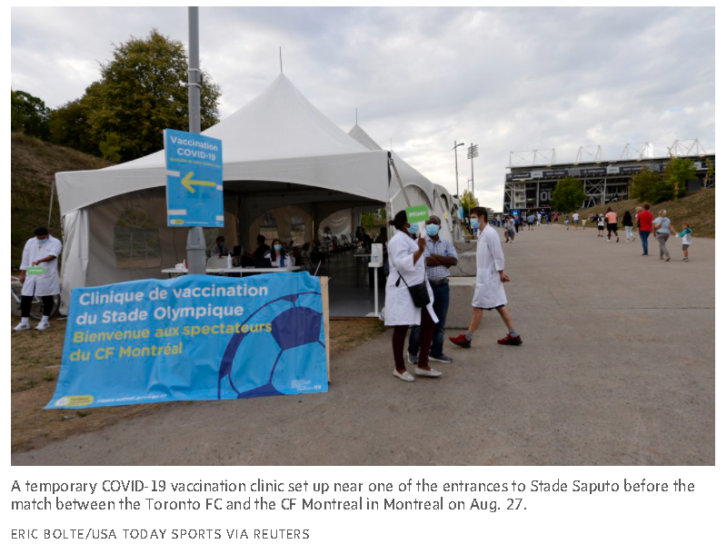Kristen Hopewell is the Canada research chair in global policy in the School of Public Policy and Global Affairs at the University of British Columbia.
As the number of COVID-19 cases continued to rise in the United States, the Food and Drug Administration announced it was taking action to bolster protection for people whose weakened immune systems leave them acutely vulnerable to the coronavirus. Earlier this month, it authorized extra doses of vaccines for the immunocompromised. This is a move that will save countless lives. U.S. health officials later said they were considering booster shots for all Americans in the fall.
Canadian health care leaders, however, continue to deny additional doses to the immunocompromised. This is putting our most vulnerable citizens in danger.
About 3 per cent of Canadians – more than a million people – are immunocompromised. They include transplant recipients, as well as patients with cancer, HIV/AIDS, rheumatoid arthritis and other diseases that damage the immune system.

People with compromised immune systems are far more likely to become seriously ill, require hospitalization or die from COVID-19 than the rest of the population – in fact, they are 10 times as likely to die from the disease. There is also evidence they are more likely to transmit the virus to family members, friends and health care workers and can become hosts for new and more dangerous variants.
This small but highly vulnerable group has been left behind by Canada’s vaccination strategy. So far, Ontario is the only province to have authorized third doses for people with compromised immune systems.
For most Canadians, two doses provide a high degree of protection against severe illness and death from COVID-19. But that is not the case for the immunocompromised. The coronavirus vaccines work by stimulating our immune systems to produce disease-fighting antibodies. But people with compromised immune systems have weaker responses to the vaccines.
As many as 80 per cent of immunocompromised people produced no detectable antibody response to the standard two doses of the coronavirus vaccine,according to data compiled by the U.S. Centers for Disease Control and Prevention. And among those who do produce an immune response, antibody levels can be more than 100 times lower than in the general population.
The consequences are dire: Immunocompromised people account for almost half of all hospitalized COVID-19 “breakthrough” cases observed in the U.S. and Israel.
While regions across Canada reopen and loosen pandemic restrictions, people with fragile immune systems remain in grave danger.
There is hope, however. Recent studies – including one by researchers at the University Health Network in Toronto – have shown that, for many immunocompromised people, a third dose of a coronavirus vaccine dramatically improves their antibody response.
The World Health Organization has called for a temporary moratorium on “booster” shots, citing the growing disparity in vaccination rates between rich and poor countries. But WHO officials do not necessarily oppose additional doses for specific populations not protected by the standard two-dose regimen.
For the immunocompromised, a third dose is not a booster – it’s an attempt to provide an adequate level of primary immunization for people who have failed to respond fully or at all to previous shots.
Given the rapid spread of the highly contagious Delta variant, ensuring an adequate level of immunization among the immunocompromised takes on far greater urgency.
In the U.S., third shots will begin immediately for these high-risk groups. It joins a growing list of countries, including France, Germany, Sweden, the U.K. and Israel, providing additional doses for the immunocompromised.
For such vulnerable people, access to a third shot may mean the difference between life and death. Canadianhealth care leaders urgently need to authorize additional doses of COVID-19 vaccines for the immunocompromised.
Article From: Globe and Mail
Author: KRISTEN HOPEWELL

